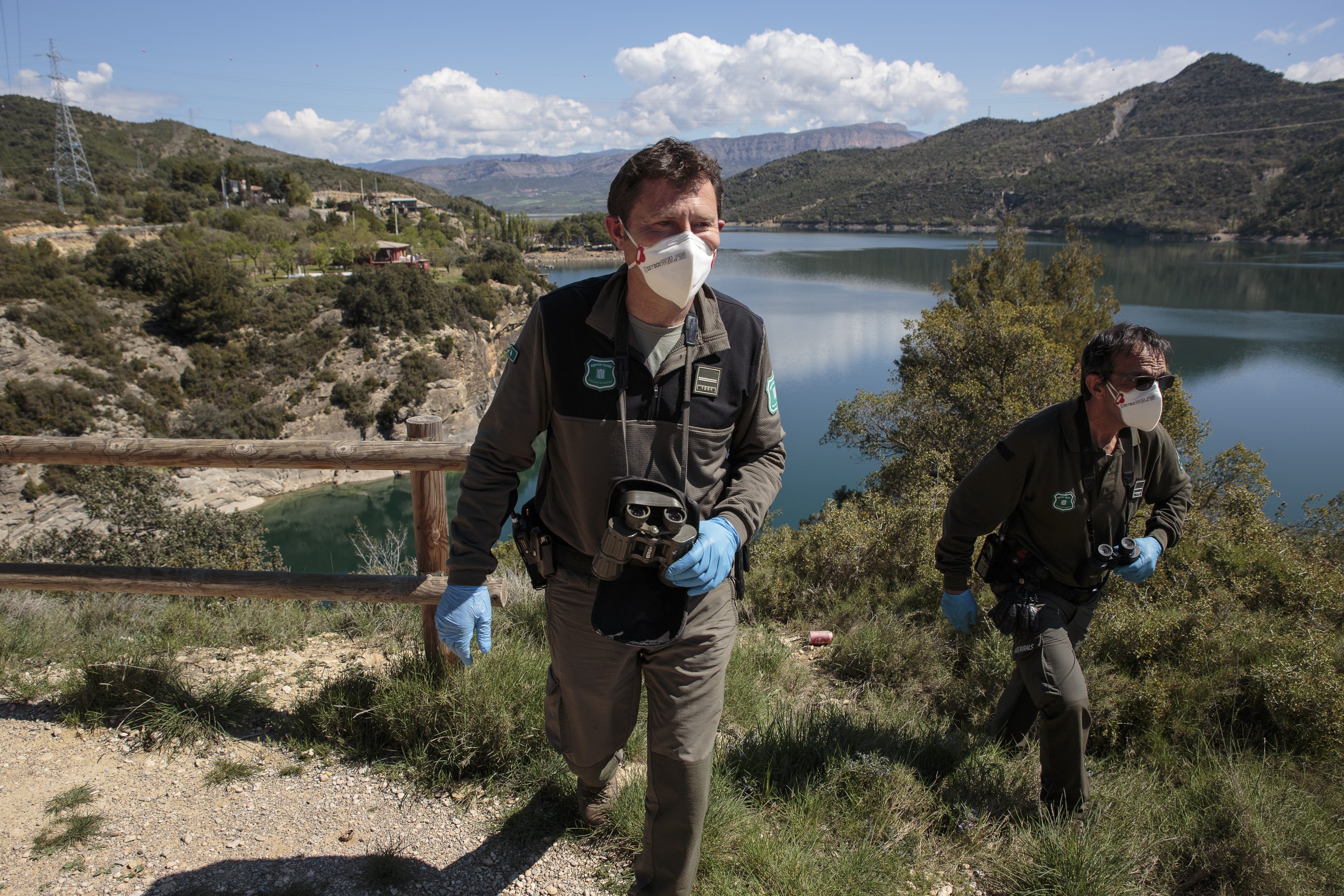These days all special and emergency forces concentrate their efforts in surveilling the lockdown and halting coronavirus. Among them, the Forestry Commission officers, who, within their remit, work together with other forces such as the Catalan Mossos d’Esquadra police force and the Fire Brigade.
The forestry officers participated in the lockdown enforcement of the Conca d' Òdena area. It performed disinfection duties outside homes for the elderly, police stations, health care centres and busy streets. Nonetheless, the officers can be called upon by town councils to disinfect main thoroughfares and crucial facilities.
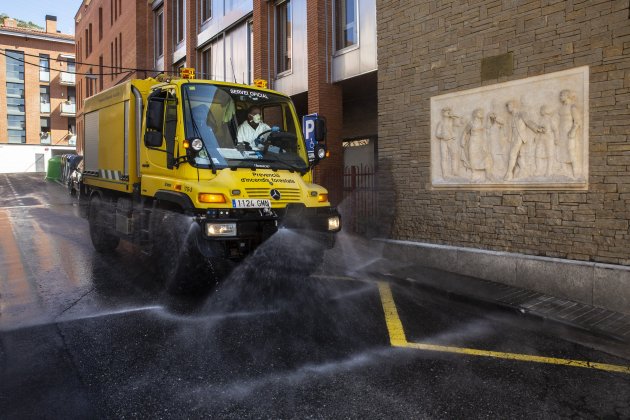
Photo: Sergi Alcàzar
The forestry officers have five 3,000-litre lorries as well as six light vehicles for disinfection tasks. “This task has absolute priority over all others”, El Nacional was told by Toni Mur, chief inspector of the Forestry Forces General Section.
Forestry officers help out the Fire Brigade which, in some towns, is disinfecting the premises of residential homes for the elderly, and are also available, at the request of some Town Councils, as an alternative for disinfection tasks to the Military Emergency Unit which had already started performing these tasks.
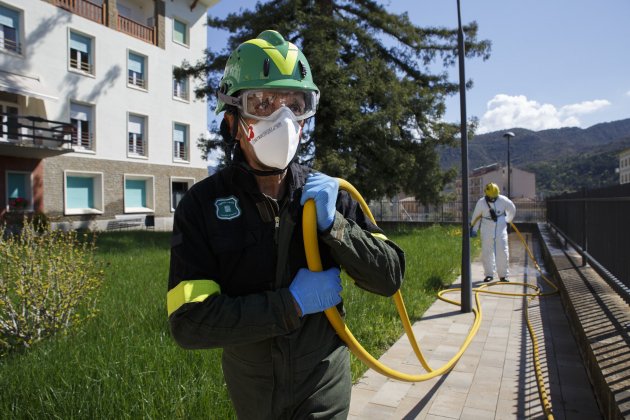
Photo: Sergi Alcàzar
Controls to avoid leisure activities
Since the start of the lockdown, the forestry officers have carried out 2,230 inspections and stopped 722 people during controls in the countryside zones where a greater influx of people is usually found. Of the people stopped, 265 were indulging in unjustified and unauthorized activities such as walking their dog in the mountains, climbing, harvesting asparagus, riding a bicycle or even camping out around a fire and bathing in natural water pools. A hunter and two fishermen have also been intercepted.
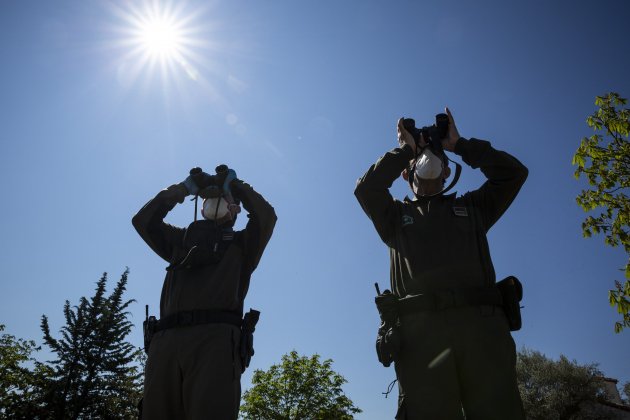
Photo: Sergi Alcàzar
Leisure activities are banned. "We have found many climbers. We spotted more cases between the 18th and 22nd March, the first days of the lockdown, but in the last few days we still found some", explains Toni Mur, chief inspector of the Forestry Officers General Area to El Nacional.
Anticipating a surge in the number of people in the mountains due to the Easter holidays, the forestry officers are intensifying surveillance, establishing controls both by land and air, using helicopters. They will focus specially on the foothills of the Pyrenees and the coastal towns.
Should a person be found doing something not allowed, the forestry officers will draw up a report and submit it to the Catalan interior ministry for it to be forwarded to the appropriate quarters. Fines range between €600 and €30,000
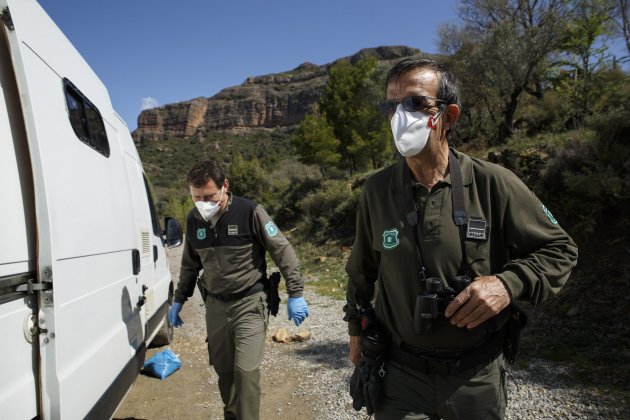
Photo: Sergi Alcàzar
Checks are in place to avoid contagion, but also to prevent accidents, according to Mur: “There is no justification for unnecessary activities which might require the deployment of emergency services and hospital admissions”. The healthcare system is now dedicated to the Covid-19 patients, and an increase in the number of admissions of accident victims or of any, other than coronavirus victims, just makes everything more difficult
Fewer hunters, more wild boars
The fact that leisure activities are not allowed means hunters cannot go organise drives, and wild boars are free to roam. Wild boars, foxes, roe deer... all kinds of animals, some of which spoil crops or endanger poultry. That means forestry officers have to do some extra work.
Toni Mur explains that “exceptional authorisations cannot be granted" and that due to "reduced human activity, animals venture where they normally would not". According to the chief inspector of the forestry officers "there is not an animal population boom, but if the lockdown were to be extended there would be a notable increase".
Adopted animals
The special permission that allows walking dogs during the lockdown increased the number of adoptions from shelters. The forestry officers are also in charge of monitoring this issue.
At the moment, a first phase of data collection is underway in both shelters and pet shops. "Information on adoptions is requested so that we can follow them up later and avoid misuse of the adoption," says Mur.
Keeping an eye on the fire
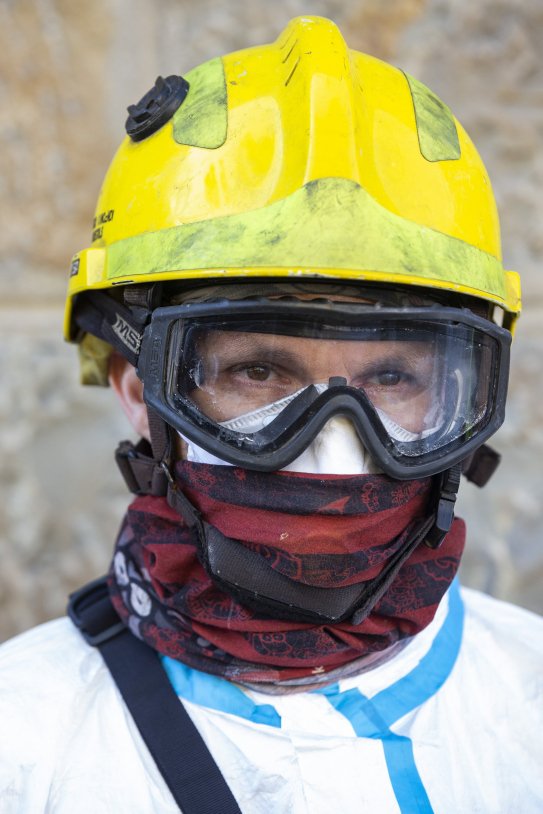
Photo: Sergi Alcàzar
The tasks during lockdown, however, do not detract from their usual duties. The stubble burning campaign is underway, and this summer's fire season is approaching. That is why the forest officers are also monitoring the protection of housing developments as part of the firefighting action plan.

